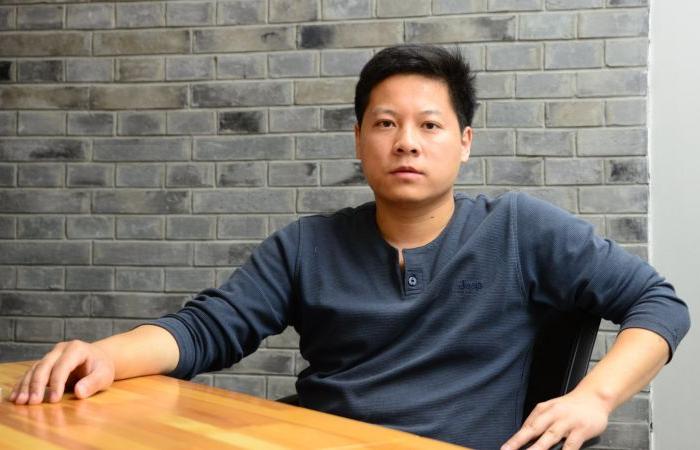Jailed over a tweet: The harshest sentences people got for social media posts
Saudi Arabia’s controversial methods of eliminating opposition and dealing with activists have once again made headlines. In August, an unprecedented court ruling sentenced Leeds student Salma al-Shehab to 34 years in prison simply for retweeting women’s rights activists. Only a couple of weeks later, another Saudi woman, Nourah bint Saeed al-Qahtani, received an even more shocking sentence for her tweets – the specialised court imprisoned her for 45 years.
But this is not the first time a government has used people’s social-media activity to silence them or set an example. Saudi Arabia is not the only country where we see “an alarming deterioration of the human-rights situation”, as one UK-based human-rights organisation commented. Censorship has long been authoritarian regimes’ favourite tool for controlling the masses. Freedom of speech, however, does not allow you to incite violence or commit slander, and sometimes a seemingly innocent social-media post can result in imprisonment. As it turns out, the rules of the real world apply online, and there may be various restrictions on what can be said on the internet depending on the country. To show how easily repressive regimes can crush opposition, our team at CasinoGuardian has looked at ten instances where internet users have been ordered to pay severe fines and serve time in prison over their social-media activity alone.
Key Takeaways:
- Over the past few weeks, Saudi courts have stepped up their repression, issuing shocking 34- and 45-year prison terms, the longest ever handed to peaceful activists
- In 2021, a Cambodian court sent a 16-year-old autistic boy to prison over Facebook posts in what was described as an unfair trial
- Under the Russian “anti-extremism” law, reposting or liking “offensive” online posts is punishable by imprisonment, fines, or compulsory labour
- Internet users in the UAE can be prosecuted on the basis of a complaint from someone who “felt insulted” by their post
| Person | Country | Platform | Charge | Sentence |
|---|---|---|---|---|
 Nourah al-Qahtani Nourah al-Qahtani | Saudi Arabia | Violating public order through social media | 45 years in prison | |
 Salma al-Shehab Salma al-Shehab | Saudi Arabia | Sedition, destabilising the state | 34 years in prison, 34-year travel ban | |
 Chen Jieren Chen Jieren | China | Picking quarrels and provoking trouble | 15 years in prison, US$1 million fine | |
 Nguyen Duy Linh Nguyen Duy Linh | Vietnam | Propagating information for the purpose of opposing the state | 5 years in prison, 5 years’ probation | |
 Vladimir Timoshenko Vladimir Timoshenko | Russia | VKontakte | Text of a humiliating and insulting nature towards high-placed officials | 1 year in prison |
 Muhammad Amirul Azwan Mohd Shakri Muhammad Amirul Azwan Mohd Shakri | Malaysia | Insulting a member of the royal family | 1 year in prison | |
 Zhou Shaoqing Zhou Shaoqing | China | Picking quarrels and provoking trouble | 9 months in prison | |
 Kak Sovann Chhay Kak Sovann Chhay | Cambodia | Facebook, Telegram | Incitement and insults to public officials | 8 months in prison, 2 years’ probation |
 Luo Changping Luo Changping | China | Violating the dignity and reputation of heroes and martyrs | 7 months in prison, $11,734 fine | |
 Laleh Shahravesh Laleh Shahravesh | Dubai, UAE | Insulting and slandering others online | 33 days in prison, $70,785 fine | |
 Tala Safwan Tala Safwan | Saudi Arabia | TikTok | Suspected charges of posting immoral / homosexual content online | Unclear |
 Daniil Markin Daniil Markin | Russia | VKontakte | Hate speech, extremism | Charges dropped |
Facing Prison for Sharing Internet Memes
In the past decade or so, hundreds of people have been arrested, fined, and handed jail terms in Russia for posting online content that mocks or criticises the government, the Russian Orthodox Church, or even a group of people. According to the Russian human-rights group Agora, authorities opened 411 criminal cases against internet users in 2017, compared with 298 in 2016. Often, opposition activists are targeted, but there are also multiple prosecutions against regular social-media users who simply share their opinions on the web.
A notable example was 18-year-old Daniil Markin. In 2017, police raided his home after seeing a series of humorous memes he reposted on his VKontakte account, the Russian version of Facebook. In one of them, Game of Thrones’ Jon Snow had a halo with the caption ‘Jon Snow has risen! Truly he has risen!’, the greeting Russian Orthodox Christians use at Easter. The original words refer to Jesus Christ, so Markin was charged with hate speech against Christians and extremism. The charges were eventually dropped after Russian President Vladimir Putin signed a bill that partially decriminalised the offences of ‘arousing hatred or enmity’ and ‘demeaning human dignity’.
Courts can still imprison people for up to 15 days over their social-media activity alone. In December 2021, Pussy Riot members Masha Alekhina and Lucy Shteyn were detained and charged with ‘propaganda of Nazi symbols’. They were jailed for 15 days for sharing ‘extremist’ content. Alekhina had posted an image of Belarusian President and Putin’s ally Aleksandr Lukashenko surrounded by swastikas. Members of the art collective have been in and out of prison multiple times over the years because of their political activism.
On 17 August 2022, journalist Yelena Shukayeva was jailed for 14 days for reposting opposition leader Aleksei Navalny’s investigative materials online. Navalny is currently in a maximum-security prison, with new charges of extremism brought against him in May.
Social Media Activity Sends a Russian to a Penal Colony
Forty-three-year-old Vladimir Timoshenko was sentenced to two years in a penal colony in 2017 for writing a post on VKontakte. The post ‘contained text of a humiliating and insulting nature towards high-placed officials’, according to a statement by the Saint Petersburg court. In his message to friends, Timoshenko apparently called for an uprising against an ‘unpopular regime’. He posted this while serving a six-year prison sentence, but the court did not clarify what his previous crimes and conviction were.
Penal colonies, although widely considered a thing of the past in the West, are still used in Russia. In fact, as of 2019, the most common type of prison in the country was the corrective colony – there were 705 colonies of this type, as well as seven penal colonies for those sentenced to life.
Hefty Fines and Jail Time for Insults and Swear Words
In March 2019, Laleh Shahravesh, a 55-year-old Brit from London, was arrested upon arrival in Dubai over a Facebook post she had written three years earlier. Back then, she was in London and, after unexpectedly receiving divorce papers in the post, learned her ex-husband had remarried in Dubai. She left a few angry, insulting sentences on his Facebook page, including ‘You left me for this horse.’
Three years later, Shahravesh and her daughter arrived in the emirate for her ex-husband’s funeral. They were detained for 12 hours, and afterwards authorities seized her passport and sent her to jail. Charged with insulting another person on the internet, the woman faced up to two years in prison and a fine of up to AED260,000 (US$70,785). Eventually, she was released after 33 days in jail and was ordered to pay a fine of AED2,700.
Under the UAE’s controversial new cybercrime laws, you can go to jail for posting an insult, a swear word, or simply anything that makes someone feel offended.
34 Years in Prison for Twitter Posts
In August 2022, authorities in Saudi Arabia handed down a record 34-year jail sentence over critical yet peaceful tweets. Salma al-Shehab, a Saudi national who had been living and studying in Leeds for several years, was arrested in January 2021 when she returned home to the Kingdom for a holiday. She was charged with using a website to ‘cause public unrest and destabilise civil and national security’. She was also accused of following, retweeting, and supporting political dissidents and activists, according to the Kingdom’s special terrorism court, which delivered the unprecedented sentence.
Initially, al-Shehab received six years in prison, but a public prosecutor asked the court to consider the additional ‘crimes’ of retweeting posts about dissidents and women’s rights. Along with the severe prison term, she received a 34-year travel ban starting from the day of her release.
Arrest over Immoral TikTok Stream
Another woman was recently detained in Saudi Arabia over her activity on social media. Popular Egyptian TikToker Tala Safwan, who has nearly five million followers on the platform, was reportedly arrested in Riyadh, Saudi Arabia, where she lives, according to Western media outlets. There is no official information regarding her alleged arrest or any charges brought against her.
Police in the Kingdom, however, announced on 25 July that it had arrested an unnamed resident who had broadcast ‘sexual content that could have a negative impact on public morality’. It also tweeted a blurred video resembling Safwan’s original TikTok stream, prompting many to assume the person in question was indeed Tala Safwan. It is unclear whether or when she will be charged, but she could face a serious prison term for her ‘suggestive’ and ‘homosexual’ content. Homosexuality is banned in Saudi Arabia, and the penalties under Sharia Law vary, with fines and deportation being the least severe options. Other penalties include beatings, torture, vigilante executions, chemical castration, imprisonment for life, public whipping, and capital punishment.
45-Year Prison Sentence for Peaceful Twitter Activity
On 30 August, the rights group Democracy for the Arab World Now (DAWN) reported that yet another woman had been sentenced in Saudi Arabia. Nourah bint Saeed al-Qahtani, a Saudi national, received 45 years in prison for ‘using the Internet to tear the social fabric’ and ‘violating public order by using social media’, court documents obtained by DAWN reveal. There are still no details on the case or the identity of al-Qahtani, but activists say the documents contain no evidence of violence or criminal activity.
What we know so far is that the woman has been handed a 45-year prison term for peaceful Twitter posts in which she criticised authorities in the Kingdom. She was sentenced under the Counter-Terrorism Law and Anti-Cybercrime Law for ‘breaking the social fabric of the Kingdom’ and for ‘producing and storing materials impinging on public order and religious values’.
1 Year in Prison for Insulting Royalty
In 2016, Muhammad Amirul Azwan Mohd Shakri, a 19-year-old Malaysian man, was detained, charged, and sentenced for posting content insulting the royal family of Johor. The country has nine states, each ruled by a Sultan from one of Malaysia’s royal dynasties.
It is unclear exactly what derogatory terms he used to offend the royal family, but he pleaded guilty to 14 charges against him, according to news reports. Under the country’s multimedia laws, anyone who posts online content others might find abusive or distressing can be sentenced to up to one year in prison. In addition, there is a potential fine of RM50,000 (US$12,324).
Satire Can Land You in Jail in China
The People’s Republic of China may be one of the largest economies in the world, but it is not the best place when it comes to human rights and freedoms. A questionable or insensitive social-media post can easily get people into trouble, and this is exactly what happened to Luo Changping. The social-media influencer, who has more than two million followers on Sina Weibo, a Twitter-like platform, was sentenced to serve seven months in prison.
He was detained after authorities found that, since 2009, he had released nine satirical and humiliating posts on Weibo. This content received more than 17 million views and comments. In his latest post, he made satirical comments about the martyrs of the Chinese People’s Volunteers (CPV) in the Korean War (called the ‘War to Resist US Aggression and Aid Korea’ in China). The Sanya court in Hainan Province also ordered the influencer to apologise publicly and pay CNY80,000 (US$11,734) in compensation.
15 Years in Prison for a Chinese Journalist
In 2020, human-rights groups reported an outrageous restriction on freedom of the press in China. Blogger Chen Jieren was sentenced to 15 years in prison for criticising the government online, writing about the corruption of multiple Communist Party officials on his WeChat account. Previously, Chen had worked as a journalist for several pro-government news outlets but had been fired for his scathing articles about the Party.
According to Reporters Without Borders (RSF), Chen Jieren was detained in 2018 along with his wife, two brothers, and two other women, and was held in one of the country’s ‘black prisons’. One of his brothers was sent to prison for four years. The court in Hunan Province jailed Chen Jieren for ‘picking quarrels and provoking trouble’, as well as for ‘extortion’, ‘blackmail’, and ‘bribery’. It also fined him CNY7 million, or roughly US$1 million. RSF estimates that this is the equivalent of 53 years of the average Chinese journalist’s salary.
Silencing the Critics of China’s Pandemic Response
Over the past two years, there have been multiple criticisms and journalistic investigations into China’s response to the COVID-19 pandemic. Li Wenliang, the Wuhan ophthalmologist who tried to warn his friends about the deadly new virus in WeChat messages, was investigated by the police for ‘spreading rumours’ and ‘making false comments’. After his death in February 2020 from that same disease, it became abundantly clear that authorities were trying to downplay the severity of the situation, censoring everyone who did not agree with the official Beijing narrative.
One of these online users was Zhou Shaoqing, a resident of Tianjin in northern China, who criticised the government and healthcare workers for their handling of the outbreak. According to his posts on Twitter, the official number of confirmed cases had been reduced ‘intentionally or otherwise’ by hospitals. He was arrested and convicted of ‘picking quarrels and provoking trouble’ with his tweets, which hardly anyone could even see because the platform is blocked in China. After confessing his ‘crime’, he was handed a nine-month prison sentence.
Vietnamese Jailed for 5 Years for Opposing the Government
In June 2022, a court in the southern Vietnamese province of Ben Tre sentenced 46-year-old farmer Nguyen Duy Linh to five years in prison and another five years of probation for defaming state and party leaders on Facebook. He had been arrested in September and accused of ‘anti-state propaganda’ after investigators discovered that he posted and shared various articles offensive to government officials. Police said he also used his social-media account to repost false information about the spread of COVID-19.
Nguyen Duy Linh was officially charged with violating Article 117 of a 2015 law that prohibits propagating information for the purpose of opposing the state. According to the new cyber-security law passed in 2019, internet and technology companies must censor content on their platforms on behalf of the government. They are also required to grant access to user data during investigations. According to the US-based human-rights group The 88 Project, dozens of political activists in Vietnam are being targeted and detained for expressing their views on the internet. Some of them, including Nguyen Duy Linh, were held in jail for months before their hearings and trials. Meanwhile, Linh’s trial lasted only three hours.
Autistic Teenager Sent to Prison for Facebook Posts
On 1 November 2021, a Cambodian court sentenced a 16-year-old autistic boy to eight months in juvenile prison for expressing his political views online. Writing on Facebook and Telegram, an instant-messaging app, Kak Sovann Chhay allegedly shared unlawful content, according to authorities. He was arrested in June of that year and later convicted of incitement and insulting public officials. Although part of the jail term was suspended, he remained on probation for two years.
The case caught the attention of human-rights advocacy groups for multiple reasons. The teenager, son of an imprisoned political opponent, was diagnosed with autism spectrum disorder but was denied further medical examination, bail, and family visits, in violation of juvenile-justice law in the country. Chhay’s father, Kak Komphear, was a member of the Cambodia National Rescue Party (CNRP), the main opposition party in Cambodia until 2017, when it was banned and dissolved. Since then, the country has been described as a de facto one-party state.